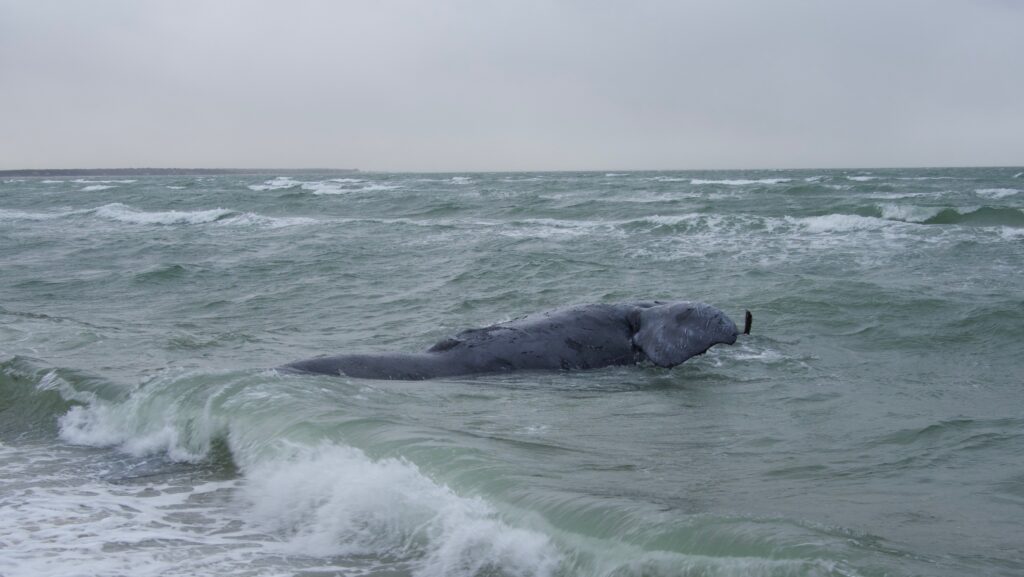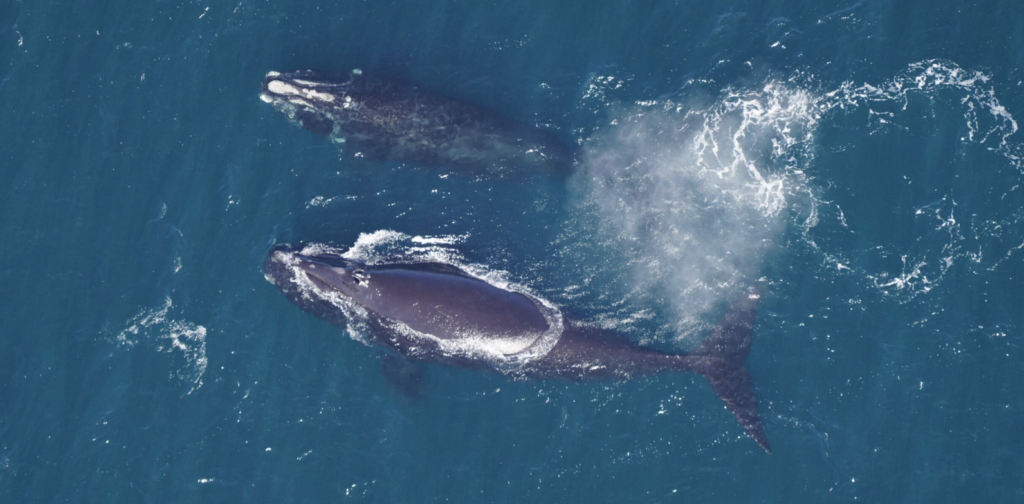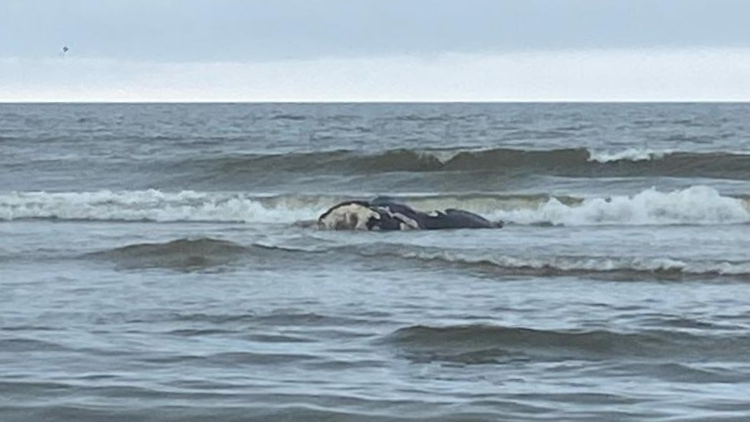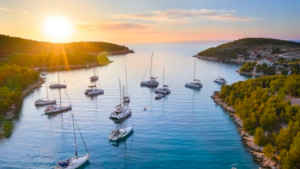NMMA ‘decries’ advancement of whale strike speed rule
 Deceased female North Atlantic right whale. Credit: Woods Hole Oceanographic Institute/Michael Moore. Taken under NOAA Permit # 24359.
Deceased female North Atlantic right whale. Credit: Woods Hole Oceanographic Institute/Michael Moore. Taken under NOAA Permit # 24359.
The National Marine Manufacturers Association (NMMA) has expressed ‘disappointment’ with the US Department of Commerce’s decision to advance the North Atlantic right whale (NARW) Vessel Strike Reduction Rule to the Office of Management and Budget (OMB) for a final review.
An estimate from the North Atlantic Right Whale Consortium finds that the critically endangered North Atlantic right whale population remains at risk of extinction, with only around 356 whales in 2022.
The rule — proposed by the National Oceanic and Atmospheric Administration (NOAA) — would restrict small boats to 10 knots (roughly 11 mph) along much of the Eastern Seaboard for multiple months out of the year, to reduce the likelihood of mortalities and serious injuries to critically endangered right whales from vessel collisions. The proposal had been due to take place by the end of 2023, but was delayed to 2024 in November.
“We are extremely disappointed and alarmed to see this economically catastrophic and deeply flawed rule proceed to these final stages,” says Frank Hugelmeyer, president and CEO of NMMA.
“The proposed rule is based on incorrect assumptions and questionable data, and fails to distinguish between large, ocean-crossing vessels and small recreational boats, which could not be more different from each other,” says Hugelmeyer.
NMMA argues it will significantly hurt US coastal economies and the small businesses that make up the recreational boating industry.
Jobs threatened by boat speed restrictions in US
NMMA argues that the proposed rule could put more than 810,000 American jobs and nearly $230bn in economic contributions in jeopardy. More than 95 per cent of boats sold in the US are made in the US, and approximately 93 per cent of boat manufacturers are small business owners. The association argues that many coastal economies are built on recreational boating, fishing trips, and the hospitality industry that require access to the ocean, and this rule would create ripple effects throughout these economies.

“Most concerning, the proposed rule ignores the advanced marine technologies available now that can better protect the North Atlantic right whale and prevent vessel strikes,” says Hugelmeyer. “Bottom line, the rule’s many blind spots spell dire consequences for boater safety and accessibility, the economic vitality of coastal communities and marine manufacturers, and the livelihoods of countless supporting small businesses, all while undermining years of progress in marine conservation.
“We strongly urge the administration to withdraw this rule and consider the technological solutions for which we have been advocating since 2022, which promise protections for the right whale, economy, and boaters.”
The movement of the draft rule to OMB represents the last step of finalising the rule.
Boat collisions cause whale deaths
Collisions with boats are a leading cause of North Atlantic right whale injury and death. The whales are slow, swimming around six miles per hour, usually near the water’s surface. They are also dark in colour and lack a dorsal fin, making them very difficult to spot.
Studies have found that the speed of a vessel is a major factor in vessel-related collisions with North Atlantic right whales. At high speeds, vessels cannot manoeuvre to avoid them, and they swim too slowly to be able to move out of the way. This puts them at great risk of being struck, which can cause deadly injuries from blunt-force trauma or cuts from propellers.

Earlier this week, the first baby right whale of the year died from a ship collision. Federal authorities were notified of a dead right whale stranded off Georgia on Sunday (3 March 2024), the NOAA said.
NOAA it could identify the dead calf based on its injuries and markings that were documented when it was alive.
“We will continue to work with our partners to perform a necropsy and evaluate the vessel strike wounds,” NOAA said in a statement.
Boatbuilders oppose US boat speeding restrictions
Pat Healey, President and CEO of the Viking Yacht Company, the New Jersey boatbuilder that has helped fuel the industry’s opposition to the 10-knot restriction, argues: “We’ve made tremendous strides through marine electronics already through the Whale and Vessel Safety Taskforce. NOAA should be leaning on us for solutions because this is our field of expertise. The ocean is our livelihood, and no one cares more about it than boat owners and anglers.”
In a statement, Jeff Angers, president of the Center for Sportfishing Policy, comments: “Recreational anglers and boaters are America’s original conservationists, and they understand the importance of protecting North Atlantic right whales, but NOAA’s proposal represents the most extreme federal regulation ever imposed on the angling community.
“We safely navigate around objects in the water every single day; whales are no different,” says Angers.
“This is government overreach of the worst kind: missing the mark on conservation while cutting off safe vessel access to the open ocean. One-size-fits-all spatial closures will not save right whales. We have the technology today to safely coexist, and the federal government knows it. NOAA needs to start acting in good faith and follow us.”
Jeff Angers
Hugelmeyer testified last June at an oversight hearing held by the U.S. House Committee on Natural Resources, Subcommittee on Water, Wildlife and Fisheries on the vessel speed restriction, saying: “Marine mammal protection, economic prosperity and access to our cherished waters can coexist. It’s a false choice to make Americans choose one over the other. Innovative technologies, real-time tracking, and monitoring tools offer a more viable solution to protect all whales while allowing for continued recreational marine-related economic contributions along the East Coast.”
Main image of deceased female North Atlantic right whale courtesy of Woods Hole Oceanographic Institute/Michael Moore. Taken under NOAA Permit # 24359.











